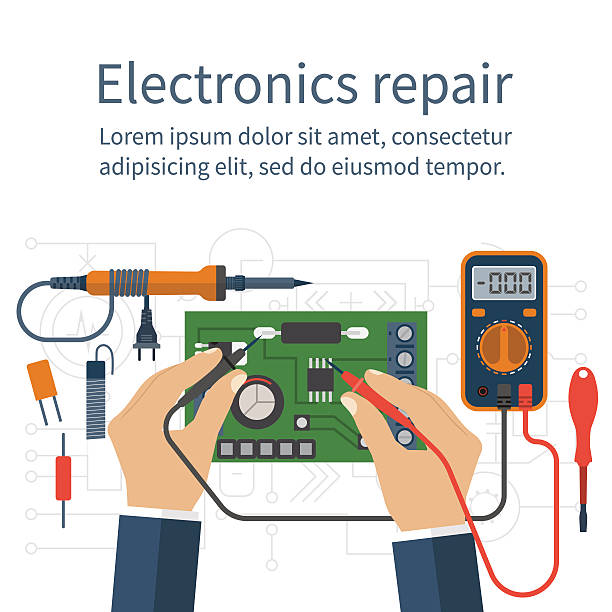Mon-Sat 9am-7pm













“Electrical & Electronics Engineering” is a growing and one of the most sought disciplines in the field of engineering study. It comprises electrical engineering and electronics engineering.
It is originated from electrical engineering. With the technical modernization of the world and computerization in our work field, it is necessary to use and understand the circuits and computerized devices in the electrical & electronic field. Electrical & electronics engineering (EEE) involves power. It can exist in various forms like a turbine, hydro, gas, fuel cell, solar, wind, or geothermal energy. It involves the use, storage, and generation of power and energy. Electrical & electronics engineering not only involves electrical appliances but also involves the computer, electronics, communication, and mechanical fields. One can become an electrical and electronics engineer after completing the 4-years study of Bachelor of Technology in this field. Electrical & electronics engineering can involve large and small amounts of power and devices.

Course & Duration
Electrical & electronics engineering is a fast-growing and most popular engineering discipline. Electronics engineering and electrical engineering are closely related to this field. The duration of the total course is four to five years.
After completion of the UG degree, the students are designated as the Bachelor of Technology (B.Tech). A bachelor degree usually covers physics, mathematics, computer science, and project management. There are so many specializations in Electrical & Electronics Engineering but to choose in higher degrees after completion of a bachelor degree. You can choose Electrical & Electronics Engineering, once you have completed your 10 or 10+2 examination with mathematics and physics.
The academic criterion of Electrical & Electronics Engineering is divided into four courses/programs as follows:
Eligibility Criteria:
Under Graduate:
For admission in a bachelor’s degree, the candidate must have passed the higher secondary school certificate (10+2) examination with science subjects such as Physics, math’s and chemistry. For IITs, It is mandatory to qualify in the Joint Entrance Examinations (J.E.E). The duration of this course is 4 years. The undergraduate syllabus includes major subjects of electromagnetics, network analysis, electronic devices and circuits, signals and systems, control systems, analog, and digital communications.
Post Graduate:
The eligibility criteria for pursuing a master’s degree are holding a bachelor's degree in (B.E/B.Tech) or any other equivalent branches of engineering. The duration of this course is 2 years.
Electrical Engineering Course profile
Graduate courses
Postgraduate courses
Diploma courses
Electrical & Electronics Engineering has the following specializations:
Admission
For admission to the UG programme, the student must have to appear in JEE Main, and for a PG programme, he/she must appear in the GATE 2020.
Students can apply for JEE Main after passing their 12th/intermediate examination for admission into the 4-years Bachelor of Technology (B.Tech) programme. Students seeking admission in IITs have to clear JEE Advanced 2020 after qualifying for JEE Main. After getting a bachelor’s degree in engineering, students will be eligible for GATE which provides admission into M.Tech courses.
There are also various state and university level entrance exams for admission into electrical and electronics engineering:
In India, the Indian Institute of Technology (IITs) and the National Institute of Technology (NITs) are considered best for pursuing engineering courses.
Book & Study Material
The top recommended books in the field of Electrical & Electronics Engineering are as follows:
Career Prospects in Electrical Engineering
Electrical Engineering is the study and application of electricity and electronics. It is an interesting branch of engineering because it involves the study of computers, electrical, electronics and communication. Electrical engineering primarily deals with the generation, transmission, and distribution of electricity.
The job profiles in the field of electrical and electronics engineering are as the following:
In India, a fresher who has a degree in Electrical & Electronics Engineering can get the offer of salary started from 2.5 lakh per annum up to 5 lakh per annum.
In abroad, the average salary of electrical engineers is $68000 per annum.
:

1. Problem-Solving Skills
Regardless of their discipline, engineers are, at their core, problem solvers. This is particularly true in electrical engineering, where you are often required to think logically and apply a particular rule or concept to a problem in order to solve it.
This is easier said than done, of course, but there are numerous techniques that can improve your approach to problem-solving. It's pointless, after all, having all that expertise if you don't know how to troubleshoot issues or approach a new project in the right way.
2. Critical Thinking Skills
Critical thinking is a broad skill that can be applied to a wide array of situations, but it's just as important in electrical engineering. Possessing the ability to approach things differently or take a different view to the norm can make a big difference when you are trying to achieve a certain goal with your project.
This includes analysing the strengths and weaknesses of the project or the problem in front of you and offering alternative solutions, approaches, and conclusions – all key aspects of critical thinking.
3. Basic Circuit Knowledge
Electrical design can become a very complex topic, especially where large installations are concerned (such as energy grids), or even within highly advanced pieces of small hardware, such as those used in smartphones. Therefore, if you're to have any hopes of getting to grips with it all, you need to first have a solid understanding of basic circuit design.
If you struggled with the fundamentals during your physics lessons in school, then you need to ask yourself if electrical engineering really interests you. Meanwhile, working on small (and safe!) projects at after-school clubs or in your own time can develop your knowledge and dexterity.
4. Enthusiasm for Learning
Although it's an essential and unavoidable step, having a degree is not the end of the educational road for an electrical engineer; in fact, it's just the beginning of your active learning journey.
Much of this is borne out of necessity. Electrical engineering is one of the fastest evolving and fiercely competitive engineering fields, so you'll need to be constantly up to date (particularly if you work in the product design and manufacturing sector). It's also a good quality to possess for your professional growth and development, too, with the ability to learn new things quickly being highly valued by top employers.
5. Communication Skills
There is barely a profession in the world where the ability to communicate isn't important, and electrical engineering is no different.
Whether it's understanding the needs and requirements of a client, working within project teams to develop or improve a piece of hardware, or working with other departments and stakeholders, communication skills are an essential part of the role.
6. Organisational Skills
The ability to organise and manage your time is important for an electrical engineer, as much of your work will likely be time-sensitive or project-based, regardless of which area of engineering you specialize in.
It's not just in the workplace that these skills will come in handy, though. They will also prove invaluable during your studies, where you will be learning and comprehending complex topics on top of everything else that higher education demands. Being able to manage it all and stay on top – especially during exam season – will stand you in good stead.
7. Numerical Skills
A common issue for electrical engineering students is that their mathematical background is not strong enough. Therefore, it is important to focus on calculus at school, as well as taking as many maths-related electives as possible at university.
8. Creative Thinking Skills
Engineers are not just problem-solvers – they are pioneers. Whether it's on a grand scale or a simple one, the solutions they provide change the way we live; therefore, to be able to explore and implement such radical ideas, you need to be able to think outside the box.
This is especially true in the commercial sector, where electronics giants are constantly competing to develop new and exciting technologies; it's also an essential quality that top engineering schools look for in potential candidates. Remember: you can have all the knowledge in the world, but if you don't know how to be creative and explore new possibilities with it, then you're going to be left behind.
9. Work Ethic
A strong work ethic is another hugely important part of a successful engineer's makeup.
The typical workload for an electrical engineering student involves around four hours of additional work for every hour in class, a ratio that is also reflected in the workplace – particularly if you are working on a high-stakes, time-sensitive project. Therefore, you must be determined and willing to work until you find a solution to whatever technical problems you encounter in your role.
10. Programming Skills
Although the importance of coding is higher in some areas of electrical engineering than others, it's still a very useful skill to possess, particularly when working with low-level embedded systems or when analysing data.
Call us at +91 9205084085, Monday - Friday, 9 am - 7 pm


